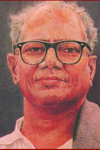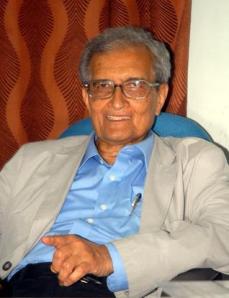 This post has been a while in the mulling, and several news items in yesterday’s newspaper (The Hindu, 11 May 2013) that seem to be of considerable importance as far as we are concerned has prompted me to write.
This post has been a while in the mulling, and several news items in yesterday’s newspaper (The Hindu, 11 May 2013) that seem to be of considerable importance as far as we are concerned has prompted me to write.
One item focussed on the comment of the Visitor, the President of India, who said at the convocation of the Babasaheb Bhimrao Ambedkar University in Lucknow, that he was unhappy with the education given by Central Universities. His drawing attention to the quality of the education, the employability of the graduates is germane, and since he comes hierarchically at the top of the pyramid of all Central Universities, it is necessary for us to take cognizance of the comment. The report adds, editorially, that higher education must be made affordable for students, especially from economically weak background. It should be brought closer to the population by innovative techniques and knowledge-sharing.
 The need for innovation seems to be at the heart of a second news item, on Delhi University’s ambitious four-year undergraduate programme that is apparently now a reality with the Executive Council on Thursday approving all the courses, examination schemes and amendments to university ordinances that are required to introduce the new structure from this July onwards. July 2013, that is. This move has also prompted a number of academics and organizations to ask the Visitor’s intervention in this matter, since DU’s decision to implement a four-year undergraduate programme has far ranging consequences.
The need for innovation seems to be at the heart of a second news item, on Delhi University’s ambitious four-year undergraduate programme that is apparently now a reality with the Executive Council on Thursday approving all the courses, examination schemes and amendments to university ordinances that are required to introduce the new structure from this July onwards. July 2013, that is. This move has also prompted a number of academics and organizations to ask the Visitor’s intervention in this matter, since DU’s decision to implement a four-year undergraduate programme has far ranging consequences.
The central issue is the nature of undergraduate education in India, its form and shape in the near future. Since this has quite obviously an impact on the nature of graduate education, on employment and employability, there is a need for all of us to be engaged in the debate, and not just leave it either to politics or to the powers that be, no matter where they be or what they are.
As is quite well known, the four year format is the norm in the US, and the merits of a flexible curriculum in the US university system as a whole is well documented. Having the youth enter the workforce at the age of 22 or 23 is also desirable, so a degree that would enable the majority to get jobs at this age would be quite welcome. However, the US system has its own internal consistencies, its own system of checks and balances that have been worked out over a long period.
Even in the Indian context, the four year undergraduate programme is not new- the various academies of science have a Science Education Panel that has this structure as an explicit recommendation, and indeed the Indian Institute of Science in Bangalore has started a four year programme in the sciences last year. However, the numbers involved are, at the moment, small, and what is offered is a B. Sc. (Honours) degree.
A third news item on the same day, reported that the Government “would not interfere in the Delhi University’s decision to introduce a four-year undergraduate course, but would look into the concerns expressed by some sections. Any decision on deferring the programme by a year would be taken by the University, which was an autonomous institution, it clarified.“
My concerns are less about the nature of the four year programme at Delhi University, and the voices of doom that assure “chaos and academic disaster” at Delhi University if this is implemented from July 2013, and more about what it means to the rest of the country. There have been many op-eds in the papers recently that are specific to the DU experiment, as well as many other blog comments and it is clear that the overall curriculum is not as well thought-out as it might have been. There have been as many voices on the side of change and that is really an internal debate.
When a large and influential university such as DU- and as Indian universities go Delhi University is one of the largest (about 4.5 lakh students) and very very influential- makes such a fundamental change in the structure of it’s undergraduate programme, the MHRD, and more importantly, the University Grants Commission, should be concerned. Very concerned.
There are many ways in which this affects all of us in general, and the UoH in particular. DU students will not get the B. A., B. Sc., B. Com. (or their Honours variants). Instead, the exit options that are being chosen for the Delhi University students is at the end of the second year is that of an Associate Baccalaureate, at the end of the third year, a Baccalaureate, and after four years, a Baccalaureate with Honours in his/her major discipline subject or a B.Tech. degree.
When the Minister for HRD says that “We should not be seen as dictating to them or questioning their wisdom. If they feel comfortable to go ahead, we do not want to come in the way,” one wonders why this coyness? Why not question the wisdom? And is the comfort really as widespread as it is made out? When the Government is so deeply involved in the functioning of Universities- most notably by the manner in which funds are given, or to the point, not given in time- why should the HRD ministry not comment on what is surely one of the more revolutionary moves that has been proposed in the Indian University system? Especially one that appears to be as hastily implemented as this.
It is not about university autonomy and whether the Delhi University academic and executive councils have followed procedures while endorsing the programme. As the President has remarked, for the majority, a University education is really about employability, and the various degrees that DU has put on the platter do not appear to offer any advantage over what exists now, while it does promise to increase the costs of a degree by at least 33%, if not more. And the cost of additional infrastructure (that does not exist in most colleges as of now) is another factor that should be viewed in the context of the low funding that most colleges have in the first place. It is therefore inexplicable why the UGC, which certifies all degrees, has not entered the debate so far.
 The change in the school educational system from the 11 year pattern to an 10+2 pattern was an equally momentous one, and while it was generally good for education all around, one system that did not benefit from it was the network of polytechnic institutions in the country, which remain to this day a poor option for those that pass Class 10. I mentioned this in my talk at the Sundarayya Vignana Kendram, at the recent Centenary Celebrations India Today: Looking Back, Looking Forward conference when I had to speak in a session on Science and Education, and was asked specifically to focus on Science, Education and Research: Problems and Prospects. I mentioned that this has resulted in very poor inputs into the industrial and manufacturing sector. Similarly, the introduction of new and poorly conceived degrees should be viewed with some concern, and the employability of persons with two years of college seems, at this time, to be in considerable doubt.
The change in the school educational system from the 11 year pattern to an 10+2 pattern was an equally momentous one, and while it was generally good for education all around, one system that did not benefit from it was the network of polytechnic institutions in the country, which remain to this day a poor option for those that pass Class 10. I mentioned this in my talk at the Sundarayya Vignana Kendram, at the recent Centenary Celebrations India Today: Looking Back, Looking Forward conference when I had to speak in a session on Science and Education, and was asked specifically to focus on Science, Education and Research: Problems and Prospects. I mentioned that this has resulted in very poor inputs into the industrial and manufacturing sector. Similarly, the introduction of new and poorly conceived degrees should be viewed with some concern, and the employability of persons with two years of college seems, at this time, to be in considerable doubt.
This also impacts two issues that affect us more. The mobility of students has been viewed in recent times as highly desirable and indeed necessary from a purely academic point of view. This move by DU will make it very difficult for their students to move to another university for their subsequent degrees. At the UoH we have greatly benefited by having DU undergraduates enter our Masters programmes. Where the Bac. (Hons) or B. Tech. are going to fit in our system is a moot question. And would they come? And vice versa, when our Masters’ students go to DU, where do they fit in? And even later, will we employ them? Will they employ our graduates?
 More to the point, what does this say for undergraduate education in the country as a whole? It is not generally feasible to have parallel systems that are radically different when the numbers involved are so huge. (The business schools are, on this scale, minuscule, and it hardly matters if one institution offers certificates and another offers diplomas- in the end, they both offer brand names and enable very lucrative jobs.) The move by DU will naturally affect all other universities directly or indirectly. Our own five year Integrated Master’s programs are continually being reviewed, and one question that we have been asking is whether there could (or should) be an exit after the third or the fourth year. Maybe it is time to factor in the ongoing changes in the rest of the country into our own discussion as well.
More to the point, what does this say for undergraduate education in the country as a whole? It is not generally feasible to have parallel systems that are radically different when the numbers involved are so huge. (The business schools are, on this scale, minuscule, and it hardly matters if one institution offers certificates and another offers diplomas- in the end, they both offer brand names and enable very lucrative jobs.) The move by DU will naturally affect all other universities directly or indirectly. Our own five year Integrated Master’s programs are continually being reviewed, and one question that we have been asking is whether there could (or should) be an exit after the third or the fourth year. Maybe it is time to factor in the ongoing changes in the rest of the country into our own discussion as well.
 In 1971 or thereabouts, with what now seems to have been considerable prescience, I purchased a copy of the modestly priced “Telugu without a Tutor” by H. R. Rao (Sahitya Siromani, Etc.) from Higginbotham’s bookstore in Madras. My aim at that time, if I recall correctly, was to learn enough Telugu to appreciate some of the more common carnatic music compositions. That never came to pass, and for 40 years the book languished, unread.
In 1971 or thereabouts, with what now seems to have been considerable prescience, I purchased a copy of the modestly priced “Telugu without a Tutor” by H. R. Rao (Sahitya Siromani, Etc.) from Higginbotham’s bookstore in Madras. My aim at that time, if I recall correctly, was to learn enough Telugu to appreciate some of the more common carnatic music compositions. That never came to pass, and for 40 years the book languished, unread. In recent weeks I have taken to learning some conversational Telugu, and my progress is hastened by having a tutor, a conscientious one at that. Each day I struggle with adi and idi, the specious similarity with Tamil and my decaying language module that confuses nenu baagunnaanu with genki desu. Hopefully in some time I will be able to understand, and to an extent, be understood, but I think that with passing years, learning languages gets more and more difficult.
In recent weeks I have taken to learning some conversational Telugu, and my progress is hastened by having a tutor, a conscientious one at that. Each day I struggle with adi and idi, the specious similarity with Tamil and my decaying language module that confuses nenu baagunnaanu with genki desu. Hopefully in some time I will be able to understand, and to an extent, be understood, but I think that with passing years, learning languages gets more and more difficult. 












